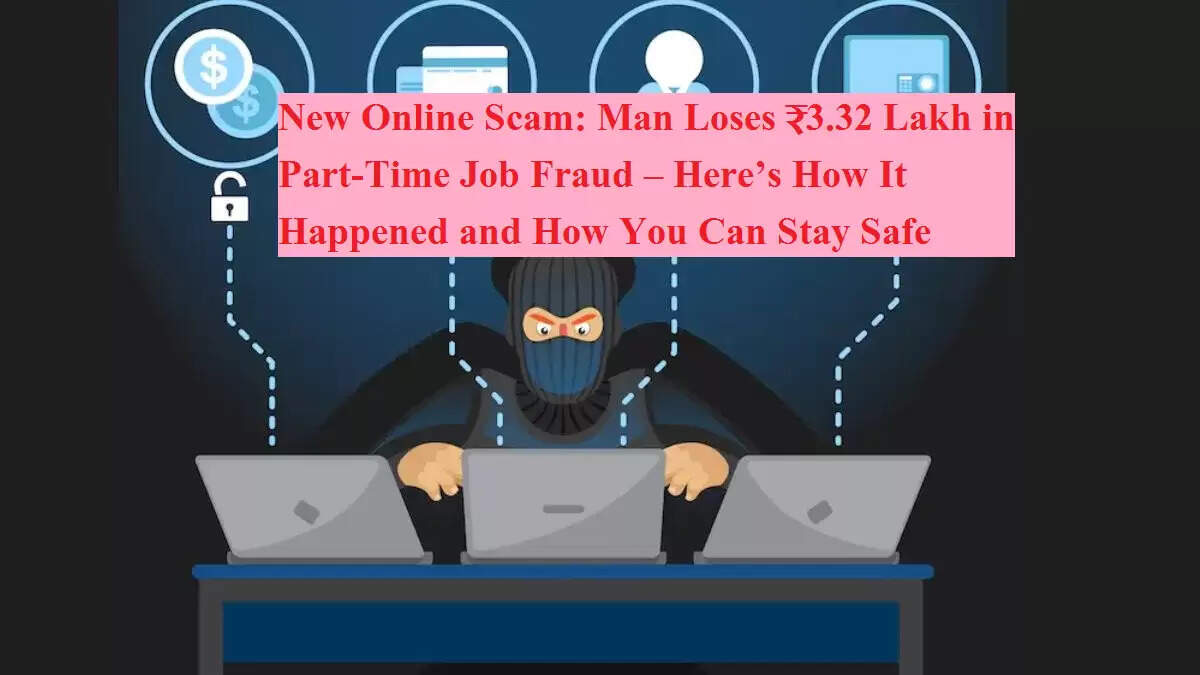
A shocking case of cyber fraud has surfaced in Hansi, Haryana, where a young man lost ₹3.32 lakh to an online part-time job scam. Cybercriminals contacted him through WhatsApp, initially gained his trust by sending small returns, and later trapped him with promises of high profits. The money was taken in multiple installments before the victim realized he had been duped.
According to reports, Sandeep Saini received a message on April 12 from an unknown number on WhatsApp offering a part-time job opportunity. When he showed interest, the scammers sent him a link claiming he could earn money by giving 5-star ratings. Initially, they returned a small amount of money to gain his trust.
Soon after, they started demanding transfers to various UPI IDs with promises of double returns, bonuses, and even fake warnings like “your account will be frozen.” Over time, Sandeep transferred a total of ₹3,32,344 to the scammers.
When the promised money wasn’t returned, Sandeep realized something was wrong. He filed an online complaint on April 16, followed by an FIR at the Hansi Cyber Police Station on June 10. The police are now investigating the case and trying to trace the fraudsters.
How to Stay Safe from Such Online Job Scams
Don’t click on suspicious links sent via WhatsApp, SMS, or email.
Offers that claim “easy income” or “get rich quickly” are usually scams.
Search for part-time or full-time jobs only through trusted sites like LinkedIn, Naukri.com, or company websites.
Always verify company details before applying.
Any job demanding registration fees, training fees, or deposits upfront is likely a fraud.
Never transfer money via UPI or payment links without proper verification.
If you've been scammed, file a complaint at www.cybercrime.gov.in or call 1930.
The sooner you report, the better your chances of recovering your money.
This kind of scam is especially effective in urban areas where people often look for side income opportunities. Fraudsters take advantage of financial stress, job seekers’ urgency, or lack of awareness to con unsuspecting victims.